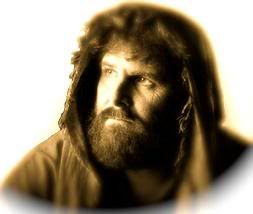Written Review 2012 [Ezekiel]
Jun 26, 2012 21:50:41 GMT -5
Post by Admin on Jun 26, 2012 21:50:41 GMT -5
<< BACK: Jeremiah
July 2
1. What did Ezekiel’s vision regarding apostate Judah foreshadow, teaching us what important lesson? (Ezek. 8:15-17)
[w07 7/1 p. 13 par. 6; w93 1/15 pp. 27-28 pars. 7, 12]
12 In the temple’s inner courtyard, Ezekiel next saw 25 apostate Israelite men worshiping the sun—a violation of Jehovah’s command against such idolatry. (Deuteronomy 4:15-19) Those idolaters also held out to God’s nose an obscene twig, perhaps representing the human male organ. No wonder God would not answer their prayers, even as Christendom will seek his help during the “great tribulation,” but in vain. (Matthew 24:21) As those apostate Israelites worshiped the light-giving sun with their backs to Jehovah’s temple, so Christendom turns her back on light from God, teaches false doctrines, idolizes worldly wisdom, and winks at immorality.—Ezekiel 8:15-18
8:5-18. Apostasy is spiritually deadly. “By his mouth the one who is an apostate brings his fellowman to ruin.” (Proverbs 11:9) We are wise to turn away from even the thought of giving a listening ear to apostates.[/ul]
July 9
2. In what way do most religious leaders imitate the false prophets of Ezekiel’s day? (Ezek.13:3, 7) [w99 10/1 p. 13 pars. 14-15]
15 Like the “stupid prophets” of that time, most religious leaders today also fail to warn people of God’s coming day of judgment. Instead, they paint an optimistic picture that political groups will ultimately achieve peace and security. More anxious to please humans than God, they tell their parishioners what they want to hear instead of explaining that God’s Kingdom is established and that the Messianic King is soon to complete his conquest. (Daniel 2:44; 2 Timothy 4:3, 4; Revelation 6:2) As false prophets, they too speak of “peace, when there is no peace.” But their conviction will soon turn into sudden horror when they must face the fury of the One they have misrepresented and upon whose name they have brought untold reproach. The leaders of the world empire of false religion, described in the Bible as an immoral woman, will choke on their own misleading cries of peace.—Revelation 18:7, 8.[/ul]
July 16
3. In the prophecy recorded at Ezekiel 17:22-24, who is the “tender one,” what is the “high and lofty mountain” to which he is transplanted, and in what way will he become “a majestic cedar”?
[w07 7/1 pp. 12-13 par. 6]
[/ul]
July 23
4. According to the proverbial saying referred to at Ezekiel 18:2, whom were Ezekiel’s fellow exiles blaming for their suffering, and what valuable lesson can we learn from this account?
[w88 9/15 p. 18 par. 10]
July 30
5. How does the incident recorded at Ezekiel 21:18-22 show that neither humans nor demons can alter Jehovah’s purpose?
[w07 7/1 p. 14 par. 4]
[/ul]
July 2
1. What did Ezekiel’s vision regarding apostate Judah foreshadow, teaching us what important lesson? (Ezek. 8:15-17)
[w07 7/1 p. 13 par. 6; w93 1/15 pp. 27-28 pars. 7, 12]
12 In the temple’s inner courtyard, Ezekiel next saw 25 apostate Israelite men worshiping the sun—a violation of Jehovah’s command against such idolatry. (Deuteronomy 4:15-19) Those idolaters also held out to God’s nose an obscene twig, perhaps representing the human male organ. No wonder God would not answer their prayers, even as Christendom will seek his help during the “great tribulation,” but in vain. (Matthew 24:21) As those apostate Israelites worshiped the light-giving sun with their backs to Jehovah’s temple, so Christendom turns her back on light from God, teaches false doctrines, idolizes worldly wisdom, and winks at immorality.—Ezekiel 8:15-18
8:5-18. Apostasy is spiritually deadly. “By his mouth the one who is an apostate brings his fellowman to ruin.” (Proverbs 11:9) We are wise to turn away from even the thought of giving a listening ear to apostates.[/ul]
July 9
2. In what way do most religious leaders imitate the false prophets of Ezekiel’s day? (Ezek.13:3, 7) [w99 10/1 p. 13 pars. 14-15]
15 Like the “stupid prophets” of that time, most religious leaders today also fail to warn people of God’s coming day of judgment. Instead, they paint an optimistic picture that political groups will ultimately achieve peace and security. More anxious to please humans than God, they tell their parishioners what they want to hear instead of explaining that God’s Kingdom is established and that the Messianic King is soon to complete his conquest. (Daniel 2:44; 2 Timothy 4:3, 4; Revelation 6:2) As false prophets, they too speak of “peace, when there is no peace.” But their conviction will soon turn into sudden horror when they must face the fury of the One they have misrepresented and upon whose name they have brought untold reproach. The leaders of the world empire of false religion, described in the Bible as an immoral woman, will choke on their own misleading cries of peace.—Revelation 18:7, 8.[/ul]
July 16
3. In the prophecy recorded at Ezekiel 17:22-24, who is the “tender one,” what is the “high and lofty mountain” to which he is transplanted, and in what way will he become “a majestic cedar”?
[w07 7/1 pp. 12-13 par. 6]
[/ul]
July 23
4. According to the proverbial saying referred to at Ezekiel 18:2, whom were Ezekiel’s fellow exiles blaming for their suffering, and what valuable lesson can we learn from this account?
[w88 9/15 p. 18 par. 10]
July 30
5. How does the incident recorded at Ezekiel 21:18-22 show that neither humans nor demons can alter Jehovah’s purpose?
[w07 7/1 p. 14 par. 4]
[/ul]



